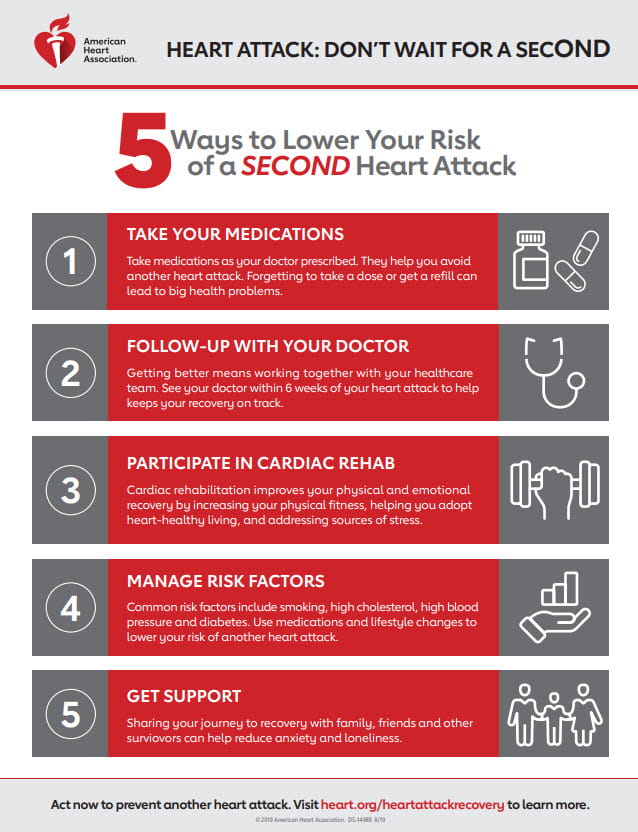Life After a Heart Attack

Explore and embrace your options
You had a heart attack. Now what?
It’s no surprise that many people feel scared, confused and overwhelmed after a heart attack. A heart attack represents a life-changing event.
After your treatment for heart attack, you likely received instructions and a lot of information from your doctor. With time to reflect, you may be trying to understand what happened. You’re sure to want to know what you can do to avoid heart problems in the future.
Navigating the road to recovery isn’t easy. Questions, confusion, uncertainty and even fear are common. Get answers to your questions and learn more about what to expect.
5 ways to prevent another heart attack
 Make prevention your priority
Make prevention your priority
After a first heart attack, most people go on to live a long, productive life. However, around 20 percent of patients age 45 and older will have another heart attack within five years of their first.
Make preventing another heart attack your first priority. Here are five things you can do:
Take your medications as prescribed. Certain medicines can greatly lower your risk of another cardiac event. That’s why it’s important for you to understand your medicines and take them correctly. Learn about managing your medications.
Attend your follow-up appointments. Attending your follow-up appointments will help your doctors keep track of your condition and recovery. You can make the most of your time with your doctor by preparing for your appointment.
Participate in cardiac rehabilitation. Cardiac rehabilitation is a medically supervised program designed to help you recover after a heart attack. You should have received a referral to cardiac rehab when you were discharged from the hospital – if you didn’t, ask your doctor about it. Learn more about cardiac rehab.
Get support. It’s normal to feel scared, overwhelmed or confused after a heart attack. Getting support from loved ones or from people who have also experienced a heart attack can help you cope. Connect with other heart attack survivors and caregivers through our Support Network.
Manage your risk factors. After a heart attack, it’s important to manage risk factors (such as high blood pressure, high cholesterol and diabetes) by taking medications, quitting smoking, eating healthy food and getting active. Find out more about managing your risk factors.
Learn about other lifestyle changes.
